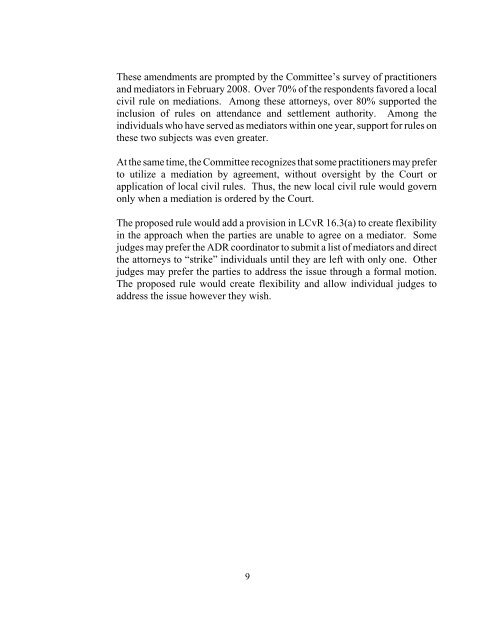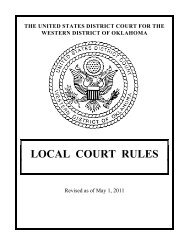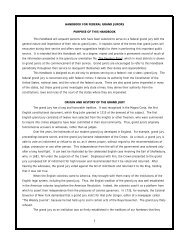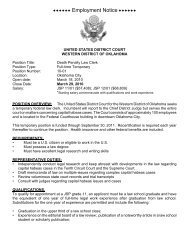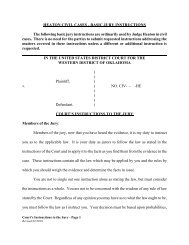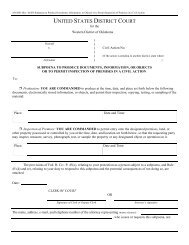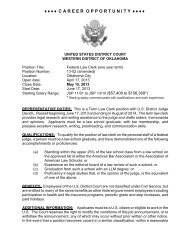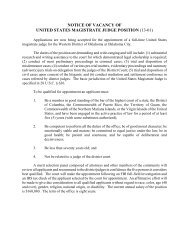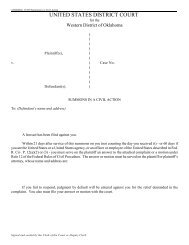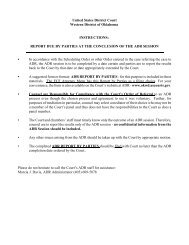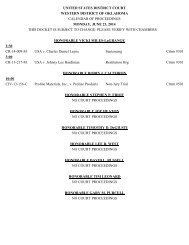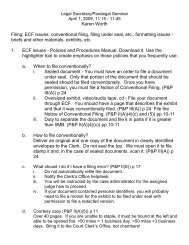united states district court western district of oklahoma local civil ...
united states district court western district of oklahoma local civil ...
united states district court western district of oklahoma local civil ...
You also want an ePaper? Increase the reach of your titles
YUMPU automatically turns print PDFs into web optimized ePapers that Google loves.
These amendments are prompted by the Committee’s survey <strong>of</strong> practitioners<br />
and mediators in February 2008. Over 70% <strong>of</strong> the respondents favored a <strong>local</strong><br />
<strong>civil</strong> rule on mediations. Among these attorneys, over 80% supported the<br />
inclusion <strong>of</strong> rules on attendance and settlement authority. Among the<br />
individuals who have served as mediators within one year, support for rules on<br />
these two subjects was even greater.<br />
At the same time, the Committee recognizes that some practitioners may prefer<br />
to utilize a mediation by agreement, without oversight by the Court or<br />
application <strong>of</strong> <strong>local</strong> <strong>civil</strong> rules. Thus, the new <strong>local</strong> <strong>civil</strong> rule would govern<br />
only when a mediation is ordered by the Court.<br />
The proposed rule would add a provision in LCvR 16.3(a) to create flexibility<br />
in the approach when the parties are unable to agree on a mediator. Some<br />
judges may prefer the ADR coordinator to submit a list <strong>of</strong> mediators and direct<br />
the attorneys to “strike” individuals until they are left with only one. Other<br />
judges may prefer the parties to address the issue through a formal motion.<br />
The proposed rule would create flexibility and allow individual judges to<br />
address the issue however they wish.<br />
9


